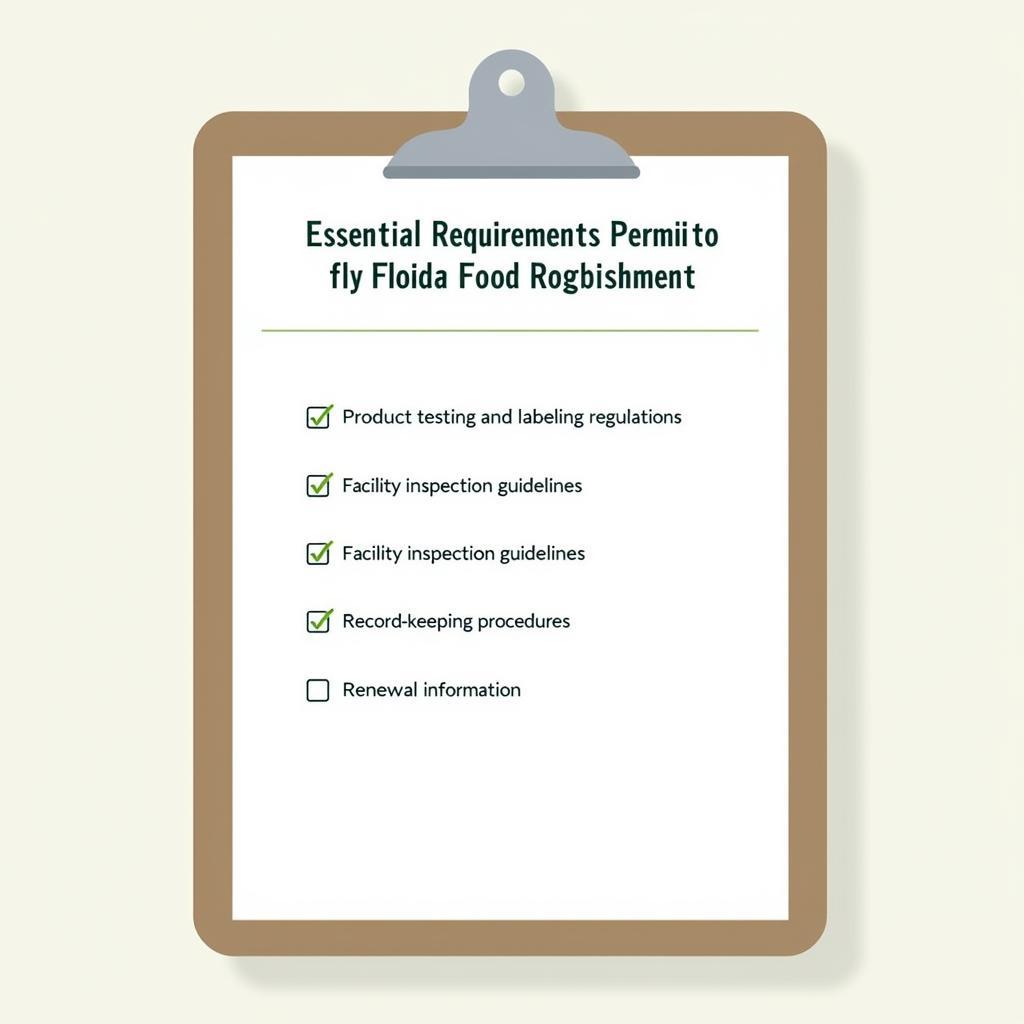Florida’s burgeoning hemp industry is opening up exciting opportunities for entrepreneurs to introduce innovative food and beverage products to the market. From hemp seed-infused protein bars to CBD-infused beverages, the possibilities seem endless. However, before you start selling your culinary creations, it’s crucial to understand the regulations surrounding Florida Hemp Food Establishment Permits.
Ensuring Safety and Compliance in the Hemp Food Sector
The Florida Department of Agriculture and Consumer Services (FDACS) is the governing body responsible for regulating hemp-derived food products. This regulatory framework is in place to protect public health and ensure the safety and quality of hemp-based food products available to consumers.
Who Needs a Florida Hemp Food Establishment Permit?
If you are involved in the manufacturing, processing, packing, holding, or distributing of hemp extract-infused food products in Florida, you will need to obtain a Florida Hemp Food Establishment Permit. This includes businesses such as:
- Food Manufacturers: Producing hemp-infused edibles like gummies, baked goods, or chocolate.
- Beverage Companies: Developing and selling CBD-infused drinks, teas, or coffees.
- Food Processors: Handling and transforming raw hemp seeds into ingredients like hemp protein powder or oil.
- Distributors: Storing and transporting hemp-infused food products to retailers.
 Florida Hemp Food Establishment Permit Requirements Checklist
Florida Hemp Food Establishment Permit Requirements Checklist
Key Requirements for Obtaining Your Permit
The FDACS has outlined specific requirements that businesses need to meet to secure a Florida Hemp Food Establishment Permit:
-
Application Submission: Submit a completed application form through the FDACS website, providing detailed information about your business operations, product line, and facility details.
-
Facility Inspection: Your food establishment will undergo a comprehensive inspection by FDACS officials to ensure compliance with food safety standards and hemp regulations.
-
Product Testing: All hemp extract-infused food products must undergo rigorous testing at a certified laboratory to verify the levels of THC and CBD.
-
Labeling Compliance: Product labels must adhere to strict FDACS guidelines, including accurate ingredient lists, nutritional information, and clear identification as a hemp-derived product.
-
Record Keeping: Maintain detailed records of all aspects of your hemp food business, including sourcing, production processes, testing results, and sales data.
Navigating Challenges, Embracing Opportunities
“Obtaining a Florida Hemp Food Establishment Permit requires a thorough understanding of the regulations and a commitment to compliance,” says Sarah Miller, a food safety consultant specializing in the hemp industry. “However, the effort is worthwhile, as it allows businesses to tap into this rapidly growing market while building consumer trust.”
Conclusion
Securing a Florida hemp food establishment permit is an essential step for any business venturing into the world of hemp-infused food and beverage products. By meeting the FDACS requirements and prioritizing safety and transparency, you can confidently share your innovative hemp creations with consumers across the Sunshine State.